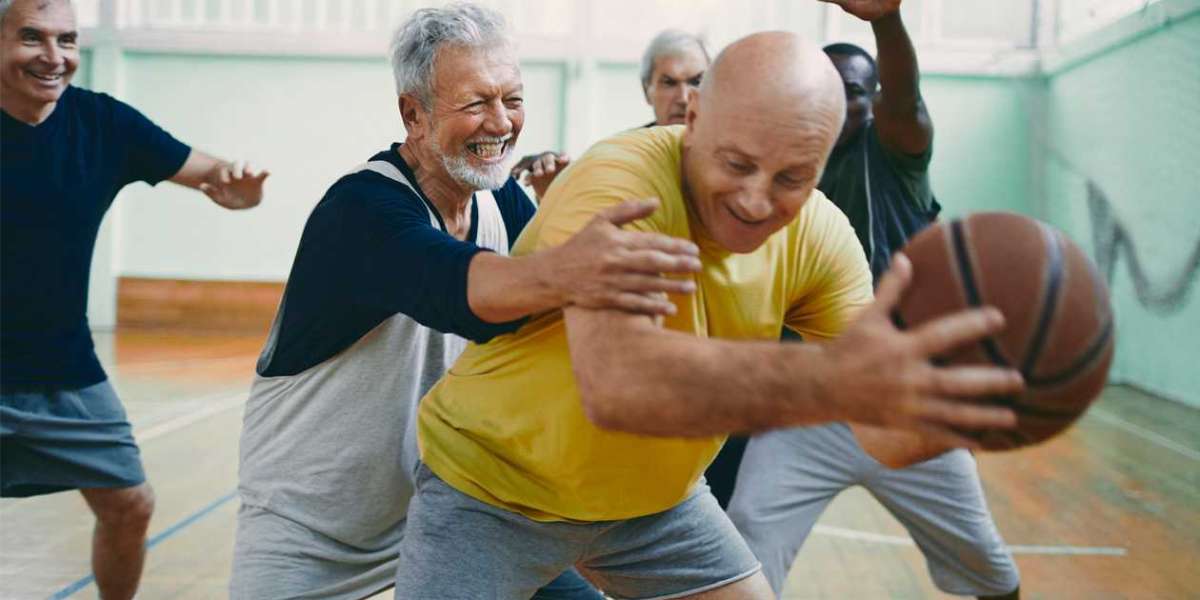No one ever claimed that growing older had to be a drag. Your retirement years present a plethora of options to participate in that sport you've always wanted to try but haven't had the opportunity to do so. Just because you've been around for a few years doesn't mean that the health benefits are gone. It is in fact possible that the benefits of participating in low-impact sports on a regular basis can have the most dramatic influence on the physical and mental health of older persons.
Discover the most important advantages of physical activity, as well as the top five sports for seniors, in the sections below.
Physical Activity Has a Variety of Health Benefits
Maintaining an active lifestyle can help you minimize your risk of developing a variety of ailments as well as increase your cognitive abilities, maintain your cardiovascular system, improve your balance, and strengthen your core muscles, among other benefits. Let's take a closer look at some of the medical ailments that light activity can help to alleviate in greater depth.
Fun
The practice of fitness has a negative reputation as something that must be done until it becomes unenjoyable, but this is simply not true. The act of moving should be a pleasurable, engaging, and carefree method to pass the time and communicate with others, rather than something to be dreaded or stressed about.
Balance
Did you realize that your level of fitness and physical equilibrium are inextricably intertwined? Falls occur most frequently when a person has become feeble, with insufficient muscle to maintain his or her entire body weight. Furthermore, by engaging in regular physical activity, you can increase your spatial awareness and cognitive abilities, making it simpler to maintain your upright position.
The State of One's Mental Health
It is believed that your mental health and physical health are intertwined to such an extent that the more you move, the better your brain stays. This is due to the fact that movement signals to the brain that it is time to produce critical hormones and neurotransmitters that will keep you going throughout the day. Staying inactive can cause hormonal imbalances since the brain doesn't perceive any need to continue releasing as many of these critical chemicals as it does when you're active.
Muscle mass should be maintained.
It goes without saying that working out helps to keep muscular mass, which can start deteriorating even before you reach 30 years of age. As you grow older, you must continue to exercise in order to maintain the muscle that determines how quickly your metabolism runs and helps you stand up straight and tall. If you've been involved in a regular strength and cardio program throughout your life, you've considerably lowered your chances of falling, developing osteoporosis, developing arthritis, or suffering from other common conditions.
older persons engaging in some physical activity
Heart and Vascular Health
Heart disease is the top cause of mortality in the United States, and exercise is one of the most effective strategies to maintain a healthy cardiovascular system. The health of your heart, both as a muscle and as an organ, is governed by how frequently you use it. Participating in physical activity that raises your heart rate provides the muscle with the extra push it requires to remain strong and healthy. It also aids in the proper expansion and contraction of your blood vessels, as well as the preservation of your lung health.
The Immune System is a system that protects the body from infection.
By engaging in regular physical activity as an older adult, your immune system is put on high alert and ready to combat any infections or bacteria that may come your way. Movement not only increases blood flow and reduces inflammation and stress, but it also signals to immune cells that they must work properly. Both inflammation and stress, in turn, can significantly impair immunity.
Health of the Joints
"Move it or lose it," as the phrase goes in the fitness community, and this is especially true when it comes to the muscle, joints, and pretty much any other component of an older adult's physical well-being. If you consistently keep your joints moving and explore your body's full range of motion, you will have the best chance of being strong and healthy for the rest of your life. Keep in mind that you must maintain a sense of balance. Overtraining and the use of excessively heavy weights can have a harmful influence on joints, therefore it's important to maintain a healthy balance.
Seniors' Favorite Sports: The Top Five
There are few pleasures more pleasant than stepping out into the fresh air and taking in some exercise while also taking in some natural beauty. Although not all sports take place outside, you should make every effort to be outside as much as possible in order to reap the benefits of all of the activities.
Walking on a regular basis
Walking is a good workout, despite the fact that it is something that we all do without thinking about it. Holding yourself up allows you to move your entire body while also developing core strength. Walking is a terrific sport to participate in at any time of year, even if you have some mobility concerns of your own. It may be necessary to use specially made walking poles or a walking stick, but with the proper equipment, almost anyone may improve their physical condition just by taking frequent walks about the neighborhood.
2. Water-based Recreational Activities
A good strategy to prevent health concerns related with a lack of physical activity is to spend time in or near the water. Swimming in a pool, participating in water polo, or taking a water aerobics class are all excellent ways to stay active in water. The workout involves both cardio and resistance exercise, yet it is also low impact.
3rd, there's lawn bowling.
Lawn bowling is another excellent form of exercise, and it is particularly well suited for persons who want to participate in a low-impact team sport. Competitive sports can be particularly beneficial for cognition since they trigger additional neurotransmitters and excite and focus those who are competitively minded on achieving their goals. When you're in a winning frame of mind, it's lot easier to keep your health in check!
Lawn bowling for elders is one of the hobbies that older people enjoy.
4. Martial Arts (also known as karate).
Tai chi and other martial arts, such as karate, are terrific full-body workouts that help you gain strength, enhance hand-eye coordination, and improve speed and agility while also improving your overall health. Tai chi is an old oriental discipline, but even something gentle like yoga or Pilates may accomplish the same objective by assisting you in increasing your range of motion and improving the link between your mind and your muscles.
5. Any net and ball game of any kind
Net and ball games are some of the most enjoyable activities for individuals of all ages. Alternatively, you may choose an outdoor sport such as tennis or badminton, where you could play singles matches on a smaller court. Alternatively, if you want, you can play indoor Ping-Pong. In Ping-Pong, you have just as much opportunity to move around and demonstrate your abilities as you have in tennis.



